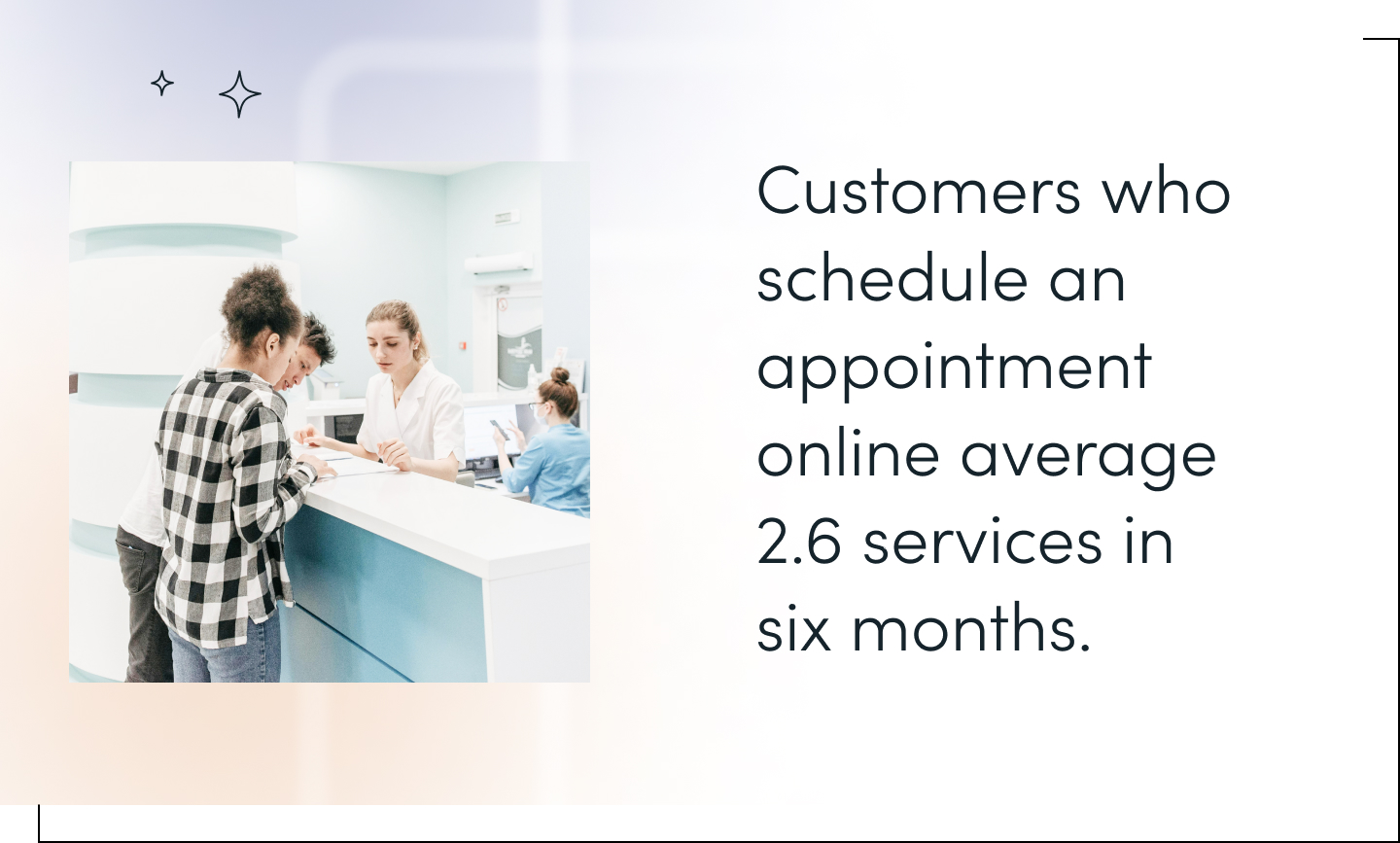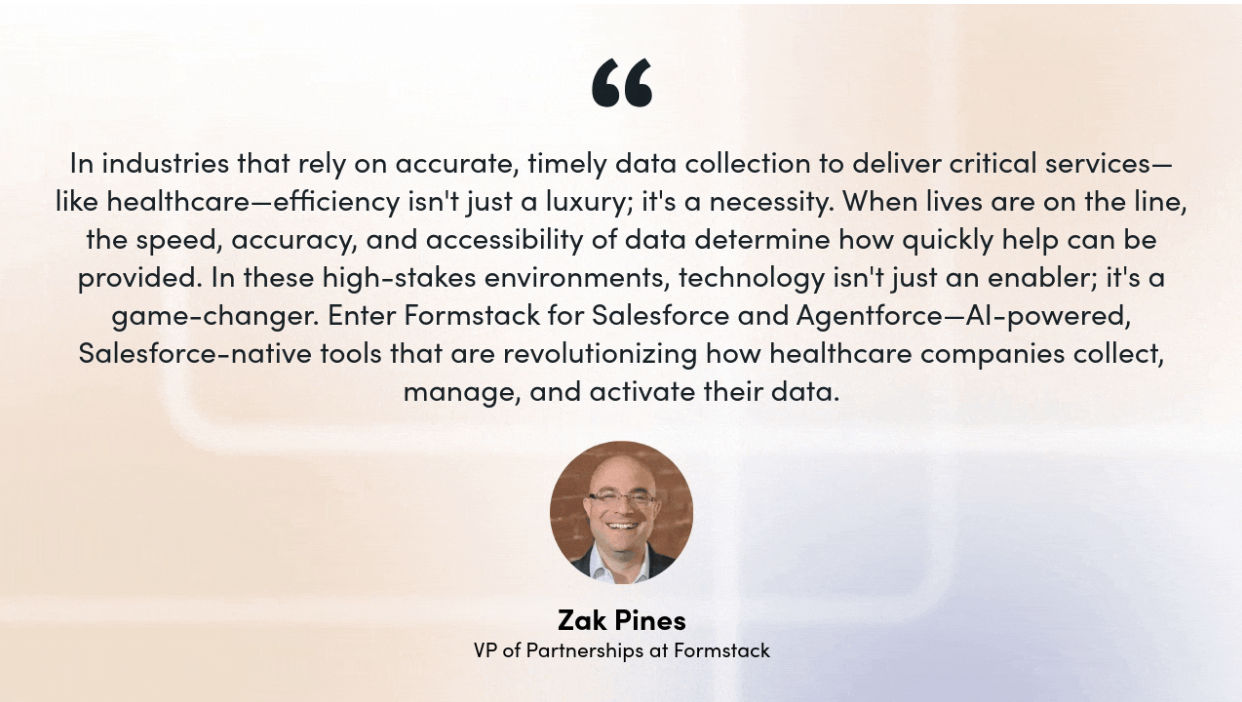As a healthcare marketer, your job is to figure out the best ways to gather new leads and convert them into patients who come back year after year. It's never been an easy job, and it seems to get more difficult each year as competition increases, technology changes, and new regulations are introduced.
But don't be discouraged. By taking the time now to update your healthcare marketing strategy, you can help your hospital or practice stay ahead of the competition. Keeping up with marketing trends will help you outpace your competitors, convert more leads, and continue to increase patient satisfaction and retention.
Here are five current healthcare marketing trends based on industry data and our interactions with healthcare marketers like you.
1. Patients Expect Top-Tier (Digital) Experiences
It's a given that the patient experience should always be top of mind, both in office and online. But do you know how much their online experience impacts your bottom line? Apparently a lot, as research shows online scheduling leads to 26% more new customers. Plus, patients who schedule an appointment online average 2.6 services in six months. If you focus on creating an exemplary online experience for potential patients, you're bound to see a high ROI.

Acquire More Leads with Digital Marketing
A patient's digital experience often begins with your organization's website. Ensure it's easy to navigate, utilizes a strong SEO strategy (more on that later), loads quickly, and provides a wide array of patient-focused content. It's also important to give potential patients options on how they interact with your brand. Consider offering online appointment booking, a customer service chatbot, electronic patient registration, text reminders, and video appointments. A recent survey found that 95% of patients have either booked a medical appointment online or would if it was available.
Potential patients will also review social media, curated content, news articles, and reviews. To ensure you get in front of them, make sure your healthcare marketing plan encompasses a robust range of content for your website, social media, and press pitches. The more high-quality content you generate, the more likely potential patients will find (and use) your services versus a competitor. This could include:
- Q&A pages on common health issues
- Videos featuring healthcare professionals
- Patient success stories
- In-depth articles focused on chronic illnesses
- Blog posts about healthy living and preventative care
Turn Leads Into Long-Term Patients
Even after new patients schedule an appointment, continue to improve their digital experiences. Implement online forms on your website to ensure patients can submit their medical information, communicate with their healthcare professional, and answer health-related questionnaires. It's a win-win for patients, the back office, and healthcare marketers that uses less paper and creates more efficiency, better data capture, and higher patient satisfaction.

2. Reputation Management is Key to Converting New Patients
People now trust online reviews almost as much as personal references. That's why user-generated content and reputation management must be part of your marketing strategy. Otherwise, you may be missing out on patients.
Try implementing an email campaign that follows up with patients after appointments, asking them to take a patient satisfaction survey and review you on Google or popular health rankings sites. The online reviews may improve your search rankings, and you could use the survey data to chart trends and proactively make improvements. You should also take time to monitor and respond to any negative reviews, demonstrating your commitment to patient satisfaction.
By pairing consistent, clear, and simple communication with an excellent digital experience, patients are more likely to not only return, but refer you by word of mouth and online.

3. Location-Based SEO Can Make or Break Your Search Ranking
“Dr. Google” is one of the first places people turn when they need medical answers. In fact, around 5% of Google searches are health-related, and about 77% of people with a new diagnosis use search engines.
To adapt to the way Americans search for healthcare information, Google has made search results more localized, even when searchers do not insert a geographic or location-specific term. That’s why more brick and mortar healthcare facilities are taking steps to rank higher in local search.
Google's algorithm ranks pages according to proximity to searcher, relevance to search terms (i.e., dermatologist, heart specialist), frequency/amount of reviews, and uniformity of address across websites. When you focus on each of those areas, you're more likely to land in the local search pack. Here's how to ace each area to ensure your healthcare organization is at the top of SERPs.
Address
Regularly update your Google Business Profile and set up individual location pages for each of your buildings if you have practices in multiple areas. When local patients search for terms like “doctor near me” or “nearest dermatologist,” Google will serve up business profiles in that area. This is similar to a franchise model for chain restaurants or stores.
It's wise to do an audit of your location listings every six months to ensure accuracy. Sites to review include your website, social media, Google My Business Pages, and review sites like Healthgrades and RateMDs. When auditing, it's a good idea to add a photo or two or refresh the content somehow to show Google it's an active page. Keeping address details and pages up to date is incredibly important for minute clinics and urgent care sites because people are more likely to search for those using their phone, both through text and voice search.
Specialist
Many healthcare organizations are also setting up provider- or specialist-specific pages—bio pages for specific doctors that lead searchers to your site. Keep these pages up-to-date as doctors within your practice come and go so searchers have the most accurate information to set up an appointment.
Reviews
If your marketing strategy doesn't include a plan for gathering patient reviews, develop one ASAP. This is because Google places special significance on healthcare providers who have positive reviews. Google automatically shows results with at least a 4.0+ star rating within the local search pack at the top of a SERP.
Receiving negative reviews? Regularly reviewing and responding to these comments shows patients you’re dedicated to their satisfaction. You can even send a patient feedback survey to gather more details about the doctor or location they reviewed.
Search Terms
Even though Google automatically includes geographic locations in searches, you can still optimize your location-based keywords. Use an array of long-term keywords in your page content that include location name, plus identifiers like city and state. Don't forget to also include keywords connected to specialty or treatment type (e.g. Indianapolis-based Hand Surgeons).

4. Video is Convenient—for Patients and Clinicians
Video has infiltrated content marketing across all industries, and it's quickly become the medium people prefer to consume content through—even health-related content. In fact, about 1 in 5 Americans now look to TikTok for health advice before contacting a physician. While you don’t want to encourage social media alone as a replacement for medical advice, you can use it as an entry point to your practice.
Plus, video marketing has become much easier to produce, making it convenient for your busy clinicians. Instead of spending hours writing a blog or paper, physicians can record a 2-3 minute video about their specialty, which also gives viewers a sense of who they are and their bedside manner.

YouTube also has 2.49 billion monthly users, and they spend an average of 48.7 minutes per day on the platform. When they’re looking for a digital introduction to your practice, your video content can help acclimate them to your brand. Here are a few other ways you can join the healthcare video marketing trend:
- Patient stories and testimonials
- Event or location promotion
- Health education
- Quick health-focused tips and tricks
- Specialist Q&A sessions

5. AI Adoption is Growing
A recent study showed that healthcare and life science organizations have about 10 more AI models in production than the average organization in other sectors. Ninety-three percent of healthcare and life science companies plan to invest more in AI in 2025.
But it’s not just about hopping on the bandwagon. With a growing shortage of healthcare workers, AI can help make your clinical and back office teams more efficient with use cases like:
- Audio processing and medical note transcription
- Data tracking and call analysis
- Healthcare marketing content production
- Health or business forecasting
- Form and document generation
Of course, with AI still in its infancy, it can come with inherent risks like non-compliance or even inaccuracy. That’s why it’s important to invest in the most reliable and innovative AI platforms instead of those built for public use.

Healthcare Marketing Trends: Digital Is Driving the Patient Experience
A doctor's bedside manner, the cost of care, and the in-office experience will always play a major role in patient satisfaction. But healthcare marketers now have more opportunities than ever to positively affect these rankings. By putting your patients' digital experience first and making their healthcare journey as simple to navigate as possible with digital tools, your healthcare organization can please more first-time patients and continue to grow existing relationships.
Now is the time to get ahead of your competition and land the ROI your leadership team is looking for. By integrating these five healthcare marketing trends into your marketing strategy, your healthcare organization will acquire more leads, gain more patients, and retain those patients long-term.
Looking for more healthcare marketing tips? Check out tips from these helpful articles.

5 Healthcare Processes You Can Simplify With Integrations











